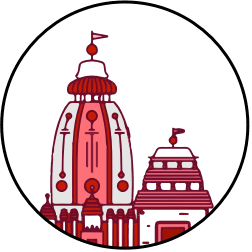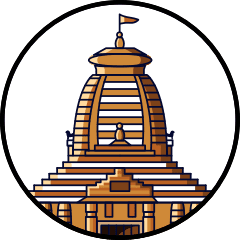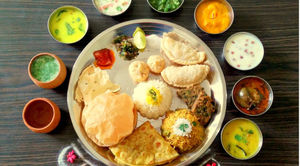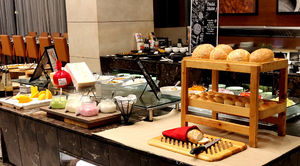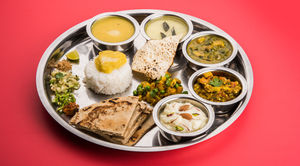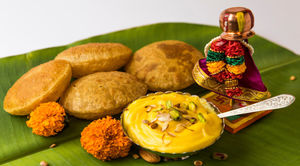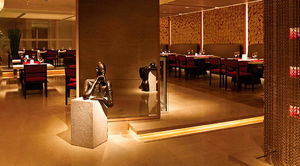This year the Maharashtrian festival of Gudi Padwa falls on the 21st of March.
Gudi Padwa is the first day of the month of Chaitra in the Maharashtrian calendar and, more importantly, is the first day of the Maharashtrian New Year. It also heralds the beginning of spring.
The Maharashtrians have an interesting food custom to start this day with. They chew a few bitter kadulimba (neem) leaves in the morning. Symbolically, it means that you are cleansing the bitterness in your life to make a fresh start in the New Year.
The Gudi Padwa lunch, which is a vegetarian affair, often has a neem chutney too and then is followed by a bevvy of sweet dishes to symbolize sweet beginnings.
The most popular of these is the sugar and hung curd based dish, shrikhand, which is had with piping hot puris. While families nowadays buy their shrikhand from outside, Gudi Padwa day is an exception. People lovingly take out family recipes out of the woodwork to make shrikhands from chakkas and sprinkle these with nuts, dry fruits, saffron and even grapes, oranges, banana and mango pieces.
Another popular combination with puris is the local favourite of aamras made from mango pulp. The ones made with Alfonso mango are the most treasured.
Gudi Padwa signals the entry of the beloved mango into Maharashtrian households. Raw mangos are already in season and amba dal made with Bengal gram, raw mango and coconut is a much-savoured dish on Gudi Padwa. As is a drink called aam panna made from raw mangoes.
Apart from with aamras and with shrikhand, puris are sometimes had by themselves on Gudi Padwa. This version of puris are called pakatle puri and are fried and put into sugar syrup.
The love for sweets on Gudi Padwa even extends to rice dishes and a sweet rice dish called sakhar bhaat is made.
Couple of other popular rice dishes on Gudi Padwa are varan bhaat (rice, daal and a dollop of ghee) and masaley bhaat (a spicy rice, golden brown with masala, potatoes, baby aubergines and cashew nuts). These are often accompanied by tomato saar (a clear soup).
A few places in Mumbai where you can go to for shikhand and aamras puri or varan bhaat are:
Aaswad, Shivaji Park
Prakash, Shivaji Park
Gypsy Corner, Shivaji Park
Vinay Health Home, Girgaom
Be prepared for long queues though.
Or you can use Mrs Bharati Rajadhyaksha’s recipe to make yourself a masala bhaat for Gudi Padwa.
Masaley-Bhaat recipe: (serves 4-5 people)
Ingredients:
Basmati rice - 2 medium-sized bowls (waatis)
Baby Aubergines (or Tindli, if preferred instead of aubergines) - 250 gms
2 medium sized potatoes
1 table spoon red chilli powder
1 table spoon ‘Kaala-masala’ (black masala – available in shops in Dadar)
Tamalpatra (bay leaf) - 2
8-10 cashew nuts (halved)
For the main Masala Powder:
Whole coriander - 1.5 tablespoons
Cumin seeds - 1 Tablespoon
Masala Elaichi/ cardamom (big) - 1
Cinnamon - 4 pcs.
Clove - 6 pcs
Black Pepper - 6
Green regular elaichi/ cardamom - 4
Dry-roast all masala ingredients and grind to fine powder.
Wash and strain the rice for about 1 hour.
Vertically slice the aubergines and potatoes into 4 parts (2 vertical slices if using Tindlis)
Heat 3 tablespoons oil in a big kadai.
Add mustard seeds, hing (asafoetida), haldi (turmeric), 2 Tamalpatras (bay leaves) and 2-3 cloves to the heated oil and stir.
Add the baby aubergines (or tindli) and potatoes and stir a bit, and add cashews.
Add all the rice, and mix it all up.
Add chilli powder, Kaala Masala, salt to taste, and a teaspoon of sugar. Now add 4 medium-sized bowls of boiling water, stir and cover the kadai with a lid. Let it cook on a medium flame.
After the rice is half-cooked, add the ground-masala power, and spread 2 tablespoons of pure ghee along the edges of the kadai.
Cover the kadai and cook the rice fully, on low flame.
After the rice is perfectly cooked, garnish with coriander leaves, scraped coconut and freshly squeezed lime before serving hot.


















